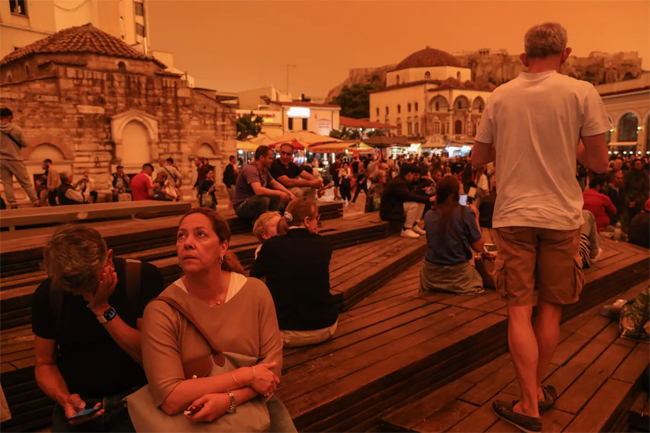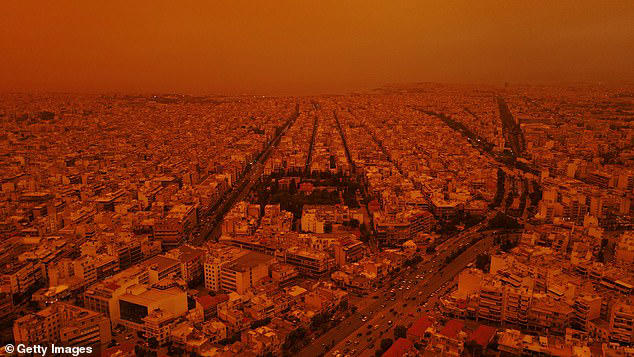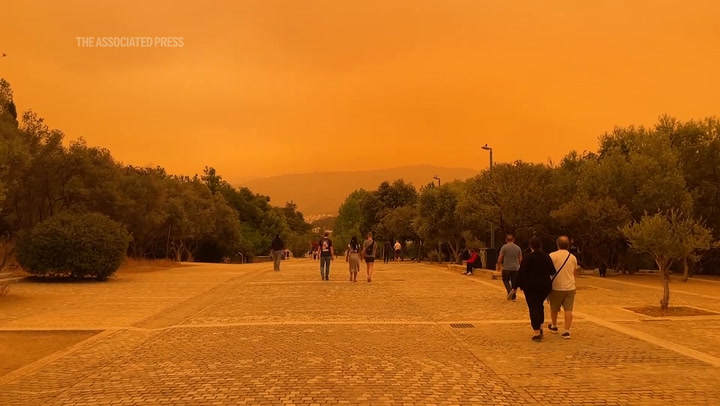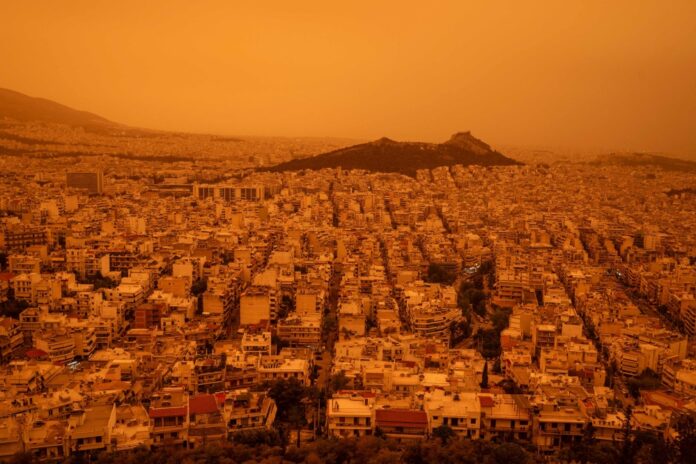In a scene reminiscent of a science fiction movie, the skies over Athens, Greece, took on an otherworldly orange hue on Tuesday as dust clouds from the Sahara Desert swept across the Mediterranean Sea, shrouding the Acropolis and other iconic landmarks.
Driven by strong southerly winds, the dust particles transformed the atmosphere of the Greek capital into something akin to the surface of Mars, casting an eerie glow over the city in the waning hours of daylight.
The phenomenon, though visually striking, is not uncommon for the region. The Sahara Desert regularly releases vast amounts of dust into the atmosphere, which can be carried by prevailing winds across long distances. However, the intensity of Tuesday’s dust storm was notable, turning the skies a deep shade of orange and prompting awe and curiosity among residents and visitors alike.
Weather forecasts indicate that the dust clouds are expected to dissipate by Wednesday as winds shift direction, bringing relief to the city and allowing temperatures to decrease. The impact of the dust, however, has been felt beyond just the unusual atmospheric appearance.
Temperatures soared in southern Greece, with parts of the island of Crete experiencing highs exceeding 30 degrees Celsius (86 degrees Fahrenheit), a significant departure from the milder conditions typically observed in much of northern Greece. These unseasonably warm temperatures, coupled with the dry, dusty air, have created favorable conditions for wildfires.
Indeed, the strong southerly winds have fueled a spate of early wildfires across the country’s southern regions. The Greek fire service reported a total of 25 wildfires breaking out in the past 24 hours alone. Among them, a blaze on the island of Paros led to the arrest of three individuals suspected of inadvertently igniting the fire. Fortunately, swift action by firefighters prevented significant damage or injuries.
Meanwhile, another wildfire near a naval base on Crete was brought under control on Tuesday, though the threat of further blazes remains a concern as the country enters the warmer months. Greece is no stranger to devastating forest fires, which often wreak havoc during the summer season. Last year, the country witnessed its largest wildfire in more than two decades, highlighting the persistent challenge faced by firefighters in combating these natural disasters.
The combination of prolonged drought, elevated spring temperatures, and now the influx of Sahara dust has raised fears of a particularly challenging fire season ahead. As authorities remain vigilant and residents brace for the potential impacts, the striking sight of Athens cloaked in an orange haze serves as a stark reminder of the interconnectedness of global weather patterns and the fragility of our environment.





